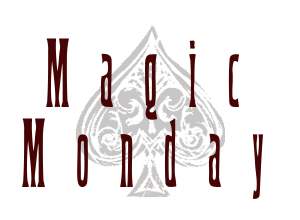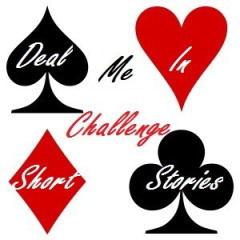Katherine Nabity's Blog, page 166
July 5, 2016
Review ~ The Last Policeman
What’s the point in solving murders if we’re all going to die soon, anyway?
Detective Hank Palace has faced this question ever since asteroid 2011GV1 hovered into view. There’s no chance left. No hope. Just six precious months until impact.
The Last Policeman presents a fascinating portrait of a pre-apocalyptic United States. The economy spirals downward while crops rot in the fields. Churches and synagogues are packed. People all over the world are walking off the job—but not Hank Palace. He’s investigating a death by hanging in a city that sees a dozen suicides every week—except this one feels suspicious, and Palace is the only cop who cares. (via Goodreads)
The Last Policeman isn’t the sort of book I’d usually read. I’m not really a fan of apocalyptic novels, pre- or post-, for my own reasons. But I won a signed copy of the second book from Geeky Library and pretty much every blogger I respect has liked the series. I purchased the first of the trilogy when it came on sale. It only took me a year and a half to get around to reading it!
You know what? I liked The Last Policeman too. I have a soft spot for characters like Hank Palace: characters who like their job, do their job, and do it well. Often, they’re on the wrong end of the circumstance stick, as in the case of Hank. It’s tough to revel in being made detective after a short time on the force when the world is going to end in six months.
I suppose some of the appeal of this trilogy might come from wondering, “What would I do with six months left?” Of course, the problem is *everyone* only has six months. The goods and services that society is used to are becoming scarce. What usually trips me up in post-apocalyptic stories is the amount of chaos that the author decides is appropriate (usually too much, in my opinion). Does Winters do a good job with societal breakdown? Eh, I’m not thinking too hard about it. The better aspect of the setting is the New England noir anyway.
I’ll be reading Countdown City in the near future.
Publishing info, my copy: Kindle, Quirk Books, 2012
Acquired: Dec. 29, 2014, Amazon
Genre: pre-apocalyptic noir


July 4, 2016
Magic Monday ~ Now You See Me 2 Review & What I’m Reading
I like Mondays. I also like magic. I figured I’d combine the two and make a Monday feature that is truly me: a little bit of magic and a look at the week ahead.
I finally got to see Now You See Me 2! (Yes, June was super busy on all fronts.)
The Four Horsemen resurface and are forcibly recruited by a tech genius to pull off their most impossible heist yet.

Sadly, the movie isn’t as good as these vintage-style magic posters made to promote the film. It suffered from an overage plot. Honestly, the sentence above would have sufficed without a major plot callback to the first film. On top of that is the “still on the run from the FBI” plot which felt additionally tacked on.
But the core of the movie, the Four Horsemen and their magical heists, was still entertaining. The chemistry between the cast members is so good that it almost feels like they had a different screenplay than the rest of the cast. Maybe a lot of improvisation occurred? I really enjoyed Isla Fisher as Henley in the first movie, but Lizzy Caplan stepping in as “the girl Horseman” Lula May was great.
It’s Monday, What Are You Reading?



Last week, I finished Yevgeny Onegin by Alexander Pushkin, translation by Anthony Briggs. It’s a very light, readable translation; I definitely recommend it.
Started to slowly get into Affinity by Sarah Waters. The writing thus far seems very passive and I’m not sure about that. Now You See Me 2 has led me back to I Lie for Money: Candid, Outrageous Stories from a Magician’s Misadventures by Steve Spill. I suspect that’s the first that I’ll finish of these two. I’ve also been listening to On Writing by Stephen King, read by the author. This is a book I own, a book I’ve read, but one I hardly remember!
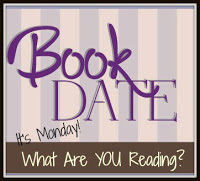 It’s Monday! What Are You Reading, hosted by Book Date!
It’s Monday! What Are You Reading, hosted by Book Date!


July 3, 2016
ROW80 ~ Round 3 2016: Goals
Have I really not ROW-ed since December? Hmm. I guess so. I took Round 1 off because I needed time away from writing. At the beginning of Round 2, I was still in the middle of a bunch of classes. But now, my summer is wide open.
Goals
Writing
David P. Abbott in The Open Court – This is a nonfiction project, a collection of the articles that Abbott wrote for The Open Court magazine. This is mostly for my edification, but maybe two or three other people might be interested in having it. Here’s what I have left to do with this project:
Need to decide if I want to add another picture (the file size is maybe starting to get big).
Do a final edit, especially of the final article which makes mention of the photos.
Write an introduction.
Add front matter.
Cover.
One Ahead series – This is my historical fiction project, based on Mr. Abbott.
Rename files in a manner that makes sense.
Gather notes and make a timeline of planned stories.
Reread first One Ahead story. Decide on a subtitle.
Rewrite/finish second story. Decide on a subtitle.
Edit pass on second story.
Draft third story.
Publishing
Website – Time to put into practice some of the stuff I’ve learned:
Change the header to be a SSI.
Validate and improve accessibility.
Website metrics?
Update “Other Works” page.
Should I set up a One Ahead page? Cart before horse?
Change blog links to drive traffic to website.
Personal Growth
Courses at Code Academy:
Finish Python.
Learn SQL
SQL: Table Transformation
SQL: Analyzing Business Metrics
What is ROW80?
We are all different and we all have different demands on our time. Why should we all have the same goal? The simple answer is that we shouldn’t. If you want to be a writer, then you have to be able to roll with the punches and adapt to your changing circumstances. If that means changing your goals when your life blows up, so be it. A Round of Words in 80 Days is the challenge that champions the marriage of writing and real life.
July 2, 2016
Deal Me In, Week 26 ~ “Trial by Combat”
Hosted by Jay @ Bibliophilopolis
“Trial by Combat” by Shirley Jackson
Card picked: Seven of Spades
From: The Lottery, and Other Stories
Thoughts: Since June 27th was “Lottery Day,” it’s seems appropriate that my story for this week is by Shirley Jackson.
I’ve just finished watching season six of A Game of Thrones. Obviously, this story is a different interpretation of “trial by combat” than what George R. R. Martin might present.
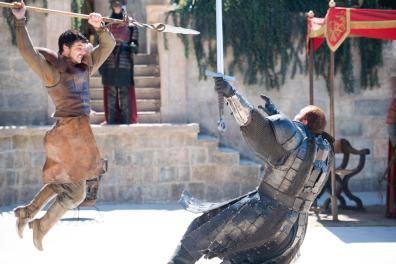 (This is from season 4, but still a great trial-by-combat scene.)
(This is from season 4, but still a great trial-by-combat scene.)Emily, a thirty-something whose husband is in the Army, has lived alone in the furnished room for six weeks. For the past two weeks, items have gone missing from her room. Small items—handkerchiefs, cigarettes, an “E” pin that she bought at a five-and-dime. She knows who the culprit is, Mrs. Allen who lives below her, and she knows what she will say when she confronts small, neat, older Mrs. Allen. Will she underestimate her foe?
So many of Shirley Jackson’s stories are “quiet.” Jackson easily captures those moments of indecision and deception that everyone has now and again. It’s that universality that make her stories realistic when they take a turn toward the weird.


June 29, 2016
June Reading Wrap-Up

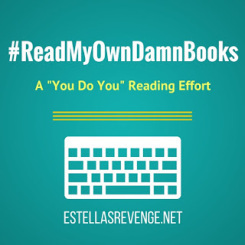
I’m doing pretty well with 15 Books of Summer…after I added an additional few titles to the list in mid-June. I’ve finished four 15 Books of Summer and have started three others. #ReadMyOwnDamnBooks is still suffering from my library trips in May. I kept my acquisitions to a minimum though NetGalley continues to be my Achilles heel.
Finished in June
The Improbability Principle by David J. Hand
The Nazi Seance by Arthur J. Magida – 15 Books Of Summer
Frankenstein by Mary Shelley – 15 Books Of Summer
The Last Policeman by Ben H. Winters – 15 Books Of Summer, #ReadMyOwnDamnBooks
Smoke and Mirrors by Mike Costa, Jon Armstrong & Ryan Browne- 15 Books of Summer
Additions to my Library
Presto by Penn Jillette, 6/9/16, NetGalley, ARC
Summerlong, Peter S. Beagle, 6/9/16, NetGalley, ARC


June 28, 2016
Review ~ Frankenstein
“I saw the pale student of unhallowed arts kneeling beside the thing he had put together. I saw the hideous phantasm of a man stretched out, & then, on the working of some powerful engine, show signs of life & stir with an uneasy, half-vital motion.” A summer evening’s ghost stories, lonely insomnia in a moonlit Alpine’s room & a runaway imagination–fired by philosophical discussions with Lord Byron & Percy Bysshe Shelley about science, galvanism & the origins of life–conspired to produce for Mary Shelley this haunting night specter. By morning, it had become the germ of her Romantic masterpiece, Frankenstein. (via Goodreads)
I first read Frankenstein in 1995. I was 20 years old and had just changed my college major from Biology to English. I read it in my first literature class and wrote my first paper about it.
At the time, I was very taken by the themes of responsibility. The creature’s big beef with his creator is that Frankenstein didn’t take responsibility for his creation. Basically, the creature is a disadvantaged son confronting his absent father. And I think that is the important “science” lesson that can be taken away from the novel: not that we shouldn’t be ambitious in our reachings, but that we need to be prepared to take responsibility for what we’ve done.
Twenty years later, it’s more evident to me that this novel was written by a young person. Shelley was 19 when Frankenstein was published. Her characters feel everything incredibly deeply. There is no joy or anxiety in half measure. And to me, now, it’s a little tiring. All Victor Frankenstein does for 90% of the book is run away. The creature takes a handful of interactions with people as reason to hate the world. The story seems to find fault in the Romantic connection of beauty and goodness, but also completely buys into it.
I read Frankenstein this time as part of a online class with some guided discussions. What interested me more this time around is why Frankenstein has remained in the public eye, more so than perhaps any other work of the period. (What other work from the early 1800s is averaging a movie adaptation a year in the past decade?) I think it goes back to something Michael Chabon mentions in Maps and Legends. When a story has gaps, we want to fill them. The biggest gap in Frankenstein concerns the creation of the monster.
It was on a dreary night of November, that I beheld the accomplishment of my toils. With an anxiety that almost amounted to agony, I collected the instruments of life around me, that I might infuse a spark of being into the lifeless thing that lay at my feet. It was already one in the morning; the rain pattered dismally against the panes, and my candle was nearly burnt out, when, by the glimmer of the half-extinguished light, I saw the dull yellow eye of the creature open; it breathed hard, and a convulsive motion agitated its limb.
That’s it. Everything we think of when we think of the creation of Frankenstein’s monster is what’s been put there by other people. In the 1910 movie, it’s a sort of primordial soup and an incubator. In the 1920s, H.P. Lovecraft riffs on the story with Herbert West and his assistant grave-robbing and pumping bodies with chemicals. In the 1930s, it’s lightning and Tesla coils. In 2016, it could be a genetic engineering in a cloning vat.
The text also give the reader three separate stories: Walton’s (the first level of the frame story, a sailor seeking a northern route), Victor’s, and the creature’s. These narratives can be read in many different ways. Is Frankenstein a simple story about ambition? Or is it a moral tale about parental responsibility? Is it a critique of Romanticism? Or is it about the dangers of unrestrained scientific research? Is it a seminal Gothic novel or one of the first science fiction stories? It can be all of these things. That gives readers (and screenwriters, filmmakers, and viewers) the opportunity to play with basic aspect of the story in many different ways.
Publishing info, my copy: PDF, Lackington, Hughes, etc., 1818
Acquired: class download
Genre: literary, horror


June 27, 2016
Magic Monday ~ Cards and Catch-Up
I like Mondays. I also like magic. I figured I’d combine the two and make a Monday feature that is truly me: a little bit of magic and a look at the week ahead.
A slightly longer video than usual, but a truly lovely performance by Shin Lim:
It’s Monday, What Are You Reading?
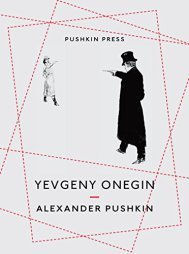 Realized on Thursday, that the Kindle version of Yevgeny Onegin (a NetGalley ARC) was poorly formatted, which means I have to read it as an epub file…the license to which expires in five days because the publisher archived the book ages before its publication date. I started it Thursday before we headed to San Diego for the weekend and am enjoying the translation.
Realized on Thursday, that the Kindle version of Yevgeny Onegin (a NetGalley ARC) was poorly formatted, which means I have to read it as an epub file…the license to which expires in five days because the publisher archived the book ages before its publication date. I started it Thursday before we headed to San Diego for the weekend and am enjoying the translation.
I’m also taking a little bit of book break to read the available nominees for the Eugie Award.
 It’s Monday! What Are You Reading, hosted by Book Date!
It’s Monday! What Are You Reading, hosted by Book Date!
What Am I Writing?
Been dragging feet on getting David P. Abbott in the Open Court finished. Here’s what I have left:
Need to decide if I want to add another picture (the file size is maybe starting to get big)
Do a final edit, especially of the final article which makes mention of the photos
Write an introduction
Add front matter
Cover


June 22, 2016
YesterNews ~ Sports Drink, 1911
I’m headed to San Diego to play in the Southwest Masters Women’s Regionals*. Or in layman’s terms: to play more ultimate frisbee than is advisable for this 41-year-old.
I figure I’m going to need all the help I can get: Omaha daily bee. (Omaha [Neb.]), 04 Feb. 1911. Chronicling America: Historic American Newspapers. Lib. of Congress.
Omaha daily bee. (Omaha [Neb.]), 04 Feb. 1911. Chronicling America: Historic American Newspapers. Lib. of Congress.
*My team’s name is Maul. Any cheering from remote distances will be appreciated.


June 21, 2016
Review ~ The Nazi Seance
World War I left Berlin, and all of Germany, devastated. Charlatans and demagogues eagerly exploited the desperate crowds. Fascination with the occult was everywhere – in private séances, personalized psychic readings, communions with the dead – as people struggled to escape the grim reality of their lives. In the early 1930s, the most famous mentalist in the German capital was Erik Jan Hanussen, a Jewish mind reader originally from Vienna who became so popular in Berlin that he rubbed elbows with high ranking Nazis, became close with top Storm Troopers, and even advised Hitler.
Called “Europe’s Greatest Oracle Since Nostradamus,” Hanussen assumed he could manipulate some of the more incendiary personalities of his time just as he had manipulated his fans. He turned his occult newspaper in Berlin into a Nazi propaganda paper, personally assured Hitler that the stars were aligned in his favor, and predicted the infamous Reichstag Fire that would solidify the Nazis’ grip on Germany. (via Goodreads)
Before the era of television and movies, magicians had to engage in a certain amount of myth-making. The magician was selling the story of himself before an audience ever saw him pull a rabbit out of his hat. When Arthur J. Magida examined some of the stories Erik Jan Hanussen wrote in Meine Lebenslinie, an account of Hanussen’s early years, Magida wasn’t surprised that there were few corroborating details. The tale of how Hermann Steinschneider became Erik Jan Hanussen is full of exaggeration with Hermann always cast as the hero. This is the backdrop that must be kept in mind with Hanussen. If the rumor was that Hanussen was the personal advisor to Hilter, why would he refute that?
Magida does a good job sifting through the rumors and the exaggerations. Hanussen played a very dangerous game, being a Jew with ties to the Nazi party. He was obviously a very talented psychic, using a combination of cold reading, muscle reading, and his own intuitions. Unfortunately, he let fame and ego blind him to the danger he was in after Hitler became chancellor.
This books is also an interesting look at the rise of the Third Reich. What I know about WWII is based around the Holocaust. That’s an important narrative, but I think remembrance needs to stretch back to how it came about. Hanussen wasn’t a pure, naive victim of the Nazis, but he was an entertainer who loved Berlin. It was his home; it was were he wanted to stay and he was willing to jockey for good position no matter what the cost.
Publishing info, my copy: hardback, Palgrave Macmillan, 2011
Acquired: Tempe Public Library
Genre: nonfiction
And I really can’t mention Hanussen without a shout-out to Neil Tobin’s “interactive biographical comedy-drama” Palace of the Occult. Check out the trailer!


June 20, 2016
Magic Monday ~ Outlook Good
I like Mondays. I also like magic. I figured I’d combine the two and make a Monday feature that is truly me: a little bit of magic and a look at the week ahead.
Tomorrow, I’ll post a review of The Nazi Seance, a biography of clairvoyant Erik Jan Hanussen. In the meantime, here’s a neat video on another famous fortune teller: the Magic 8 Ball.
It’s Monday, What Are You Reading?
Finished both The Nazi Seance and Frankenstein in the past week.
Next in the “queue” was my last library book, Magic Words by Gerald Kolpan. It’s a historical fiction novel involving Julius Meyer, an interpreter, and Alexander Herrmann, the magician, in the late 1800s. Within the first 20 pages, young Julius makes reference to sawing women into halves. This trick, though iconic now, wasn’t innovated or performed until the 1920s. And this is a huge pet peeve of mine. Ginormous. Yes, I know that I’m inconsistent in views. I watch Houdini and Doyle and it doesn’t bug me that Houdini is doing the water torture cell escape in 1901 (he didn’t do the trick until 1912). The closest I’ve come to explaining my inconsistency is that on Houdini and Doyle, it feels like they know what they’re getting wrong because they get other details right. When a character casually refers to a trick being common and iconic 50 years before it existed, I lose confidence in the author. So, right or wrong, I DNFed Magic Words…

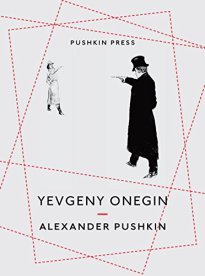
…And moved on to The Last Policeman by Ben H. Winters, which I am enjoying quite a bit. As fast as I’m going through it, I doubt it will last the week. Next up, I should probably work on an ARC, probably the new translation of Yevgeny Onegin by Alexander Pushkin.
Shockingly, all these books are on my 15-ish Books of Summer list!
 It’s Monday! What Are You Reading, hosted by Book Date!
It’s Monday! What Are You Reading, hosted by Book Date!



